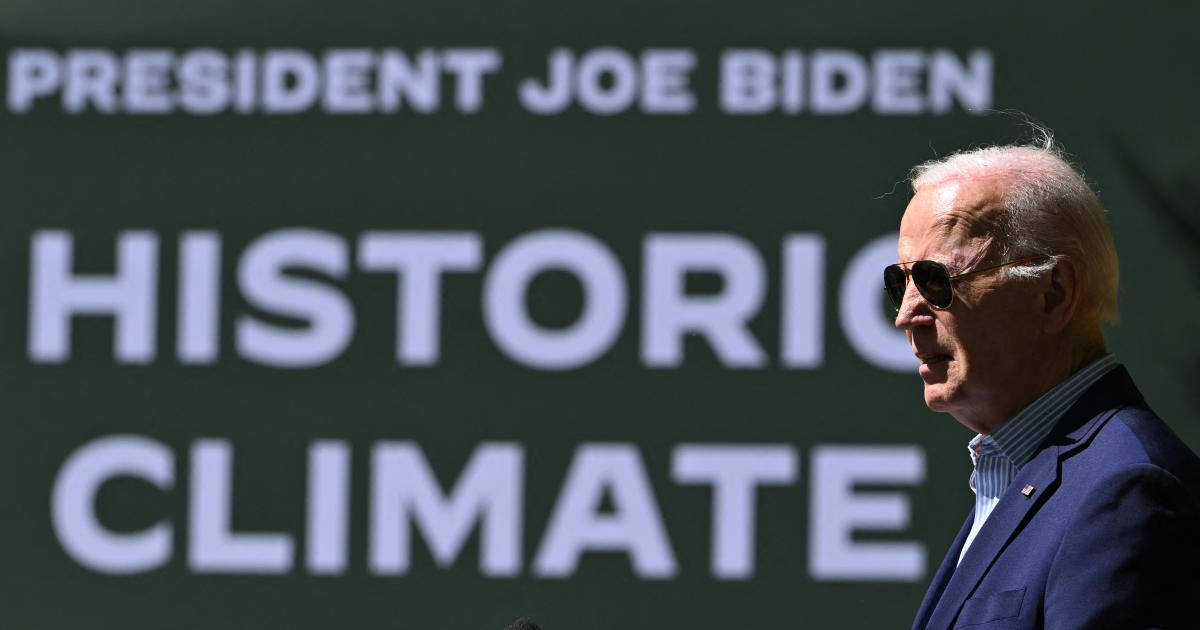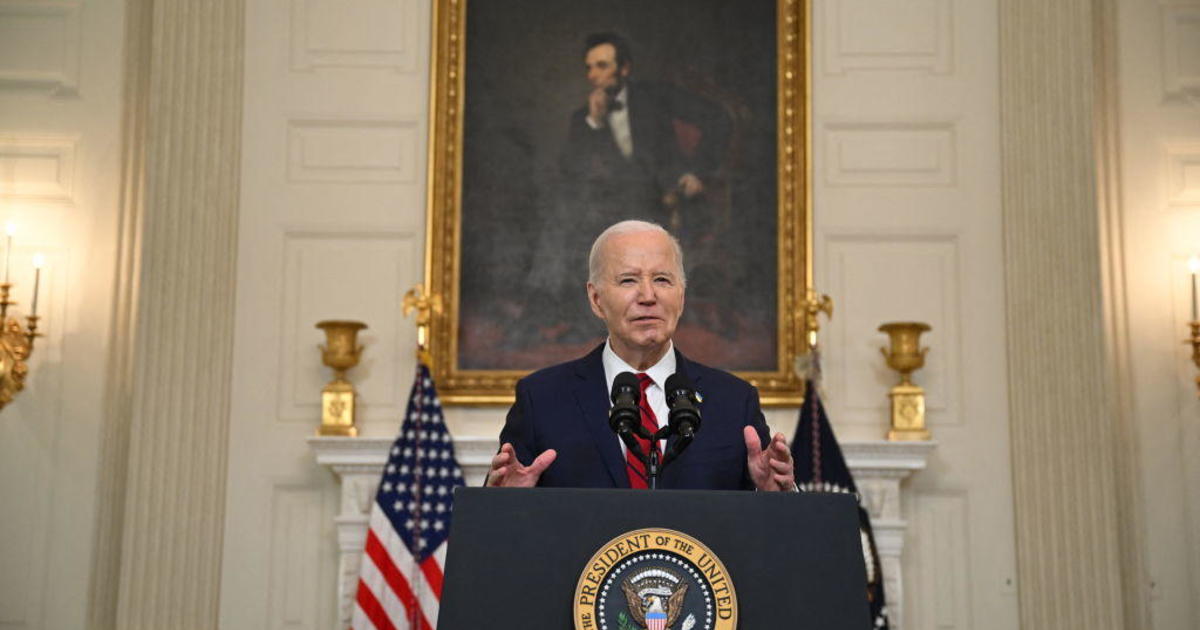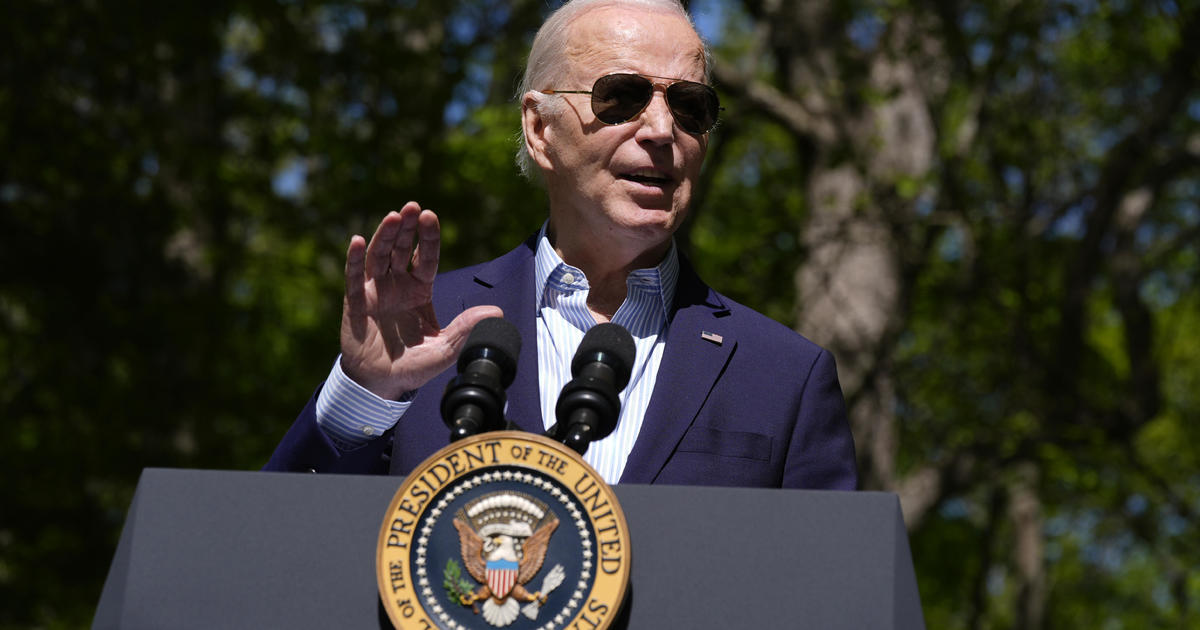Manchin rejects climate and energy provisions in reconciliation bill
West Virginia Sen. Joe Manchin has dealt a huge blow to President Biden's economic agenda, telling Senate Majority Leader Chuck Schumer that he will only support a reconciliation bill that lowers prescription drug prices and extends subsidies for the nation's health care law, the Affordable Care Act, according to a Democrat briefed on the conversations.
Manchin informed Schumer that he cannot support a bill this August containing the climate, energy or tax provisions the president seeks. In an interview with radio host Hoppy Kercheval Friday morning, he said that he told Schumer that it was not "prudent" to include these measures in the bill at this moment.
He said that he wanted to see the July inflation figures — which will be released on Aug. 10 — before proceeding with the reconciliation package. Manchin told Kercheval that he asked Senate Majority Leader Chuck Schumer, "'Chuck, can we just wait until the inflation figures come out in July?'"
Manchin reiterated in the radio interview that Senate could proceed with legislation to lower prescription drug prices and extend the ACA subsidies and said he advised the majority leader, "'Chuck, if you are on a political deadline and it has to be done in July, the one thing you know you can get done is basically do the bill, run the piece of legislation on reducing drug prices, letting Medicare negotiate."
Without those climate provisions — and coupled with the recent Supreme Court ruling limiting the power of the Environmental Protection Agency to regulate greenhouse gas emissions — it will be difficult, if not impossible, for the Biden administration to meet its climate goals. Biden had vowed to, by 2030, reduce the nation's greenhouse gas emissions by 50% to 52% below 2005 levels. A study this week from the Rhodium Group found that the U.S. is on track to reduce emissions 24% to 35% below 2005 levels by 2030 — absent additional policy action.
Oregon Democratic Sen. Ron Wyden, chairman of the Senate Finance Committee who has helped craft portion of the bill, said in a statement he could not "sugar coat" his "disappointment" at the news.
"This is our last chance to prevent the most catastrophic, and costly, effects of climate change," Wyden wrote. "We can't come back in another decade and forestall hundreds of billions — if not trillions — in economic damage and undo the inevitable human toll."
Dr. Leah Stokes, an environmental policy professor at the University of California, Santa Barbara, who provided guidance to congressional Democrats on environmental legislation, responded with a scathing statement which read in part:
"Sen. Manchin has condemned his own grandchildren to a broken planet. His actions will be recorded in the fossil record for centuries to come. What sounds like hyperbole is sadly a fact. We cannot meet our climate goals without action from Congress."
Manchin, meanwhile, also said he will not support provisions to close tax loopholes that are exploited by the wealthiest Americans and corporations to raise revenue that would help extend the solvency of Medicare, which will only be able to pay full benefits until 2028 if nothing is done. The Washington Post first reported Manchin's decision.
Late last year, Manchin, concerned about rising inflation and debt, dashed the hopes of progressives and the president when he announced he could not support Mr. Biden's Build Back Better Act, the $1.75 trillion tax and spending plan that included Democrats' key domestic policy initiatives, including climate change, health care, paid leave, housing and taxes.
For several weeks, though, the West Virginia senator has been negotiating with Schumer over a more limited package that would require Medicare to negotiate drug prices, limit the out-of-pocket costs for Medicare beneficiaries, and boost subsidies for premiums for some lower-income Americans.
Democrats have been working toward legislation that could be passed in August, which is when many states announce ACA health insurance premium increases.
The bill cannot be passed without Manchin's support. Though it only requires 51 votes under Senate rules governing budget reconciliation bills, there are only 50 Democrats in the Senate, plus Vice President Kamala Harris, who has the tiebreaking vote. No Republicans will vote for the measure.
Schumer has not yet said how he plans to proceed — whether he will proceed with a bill that will lower prescription drug prices and extends the ACA health insurance subsidies for two years as Americans face skyrocketing costs for nearly everything else — or pull the bill because it does not contain the climate and tax provisions the president and progressives want.



